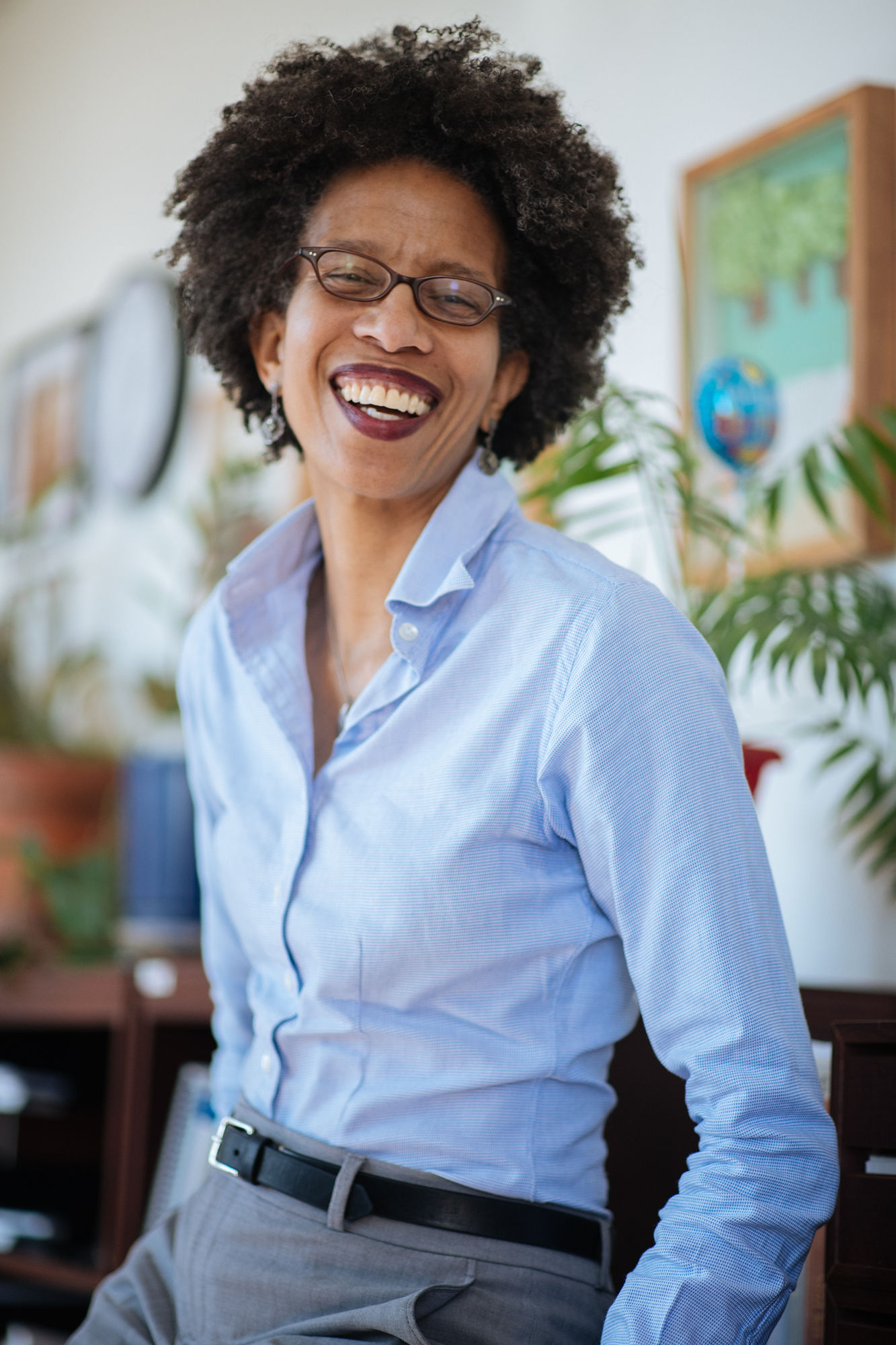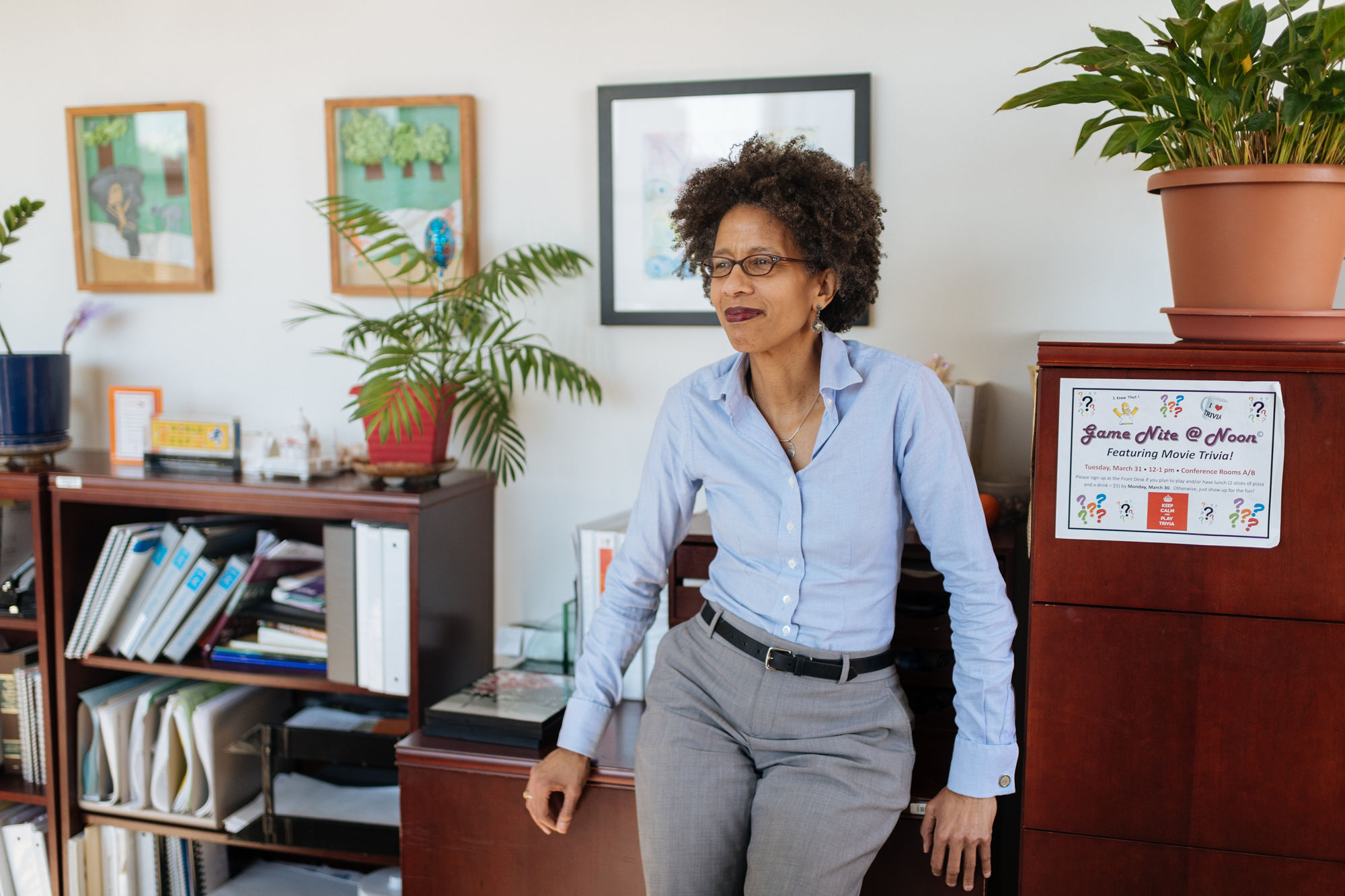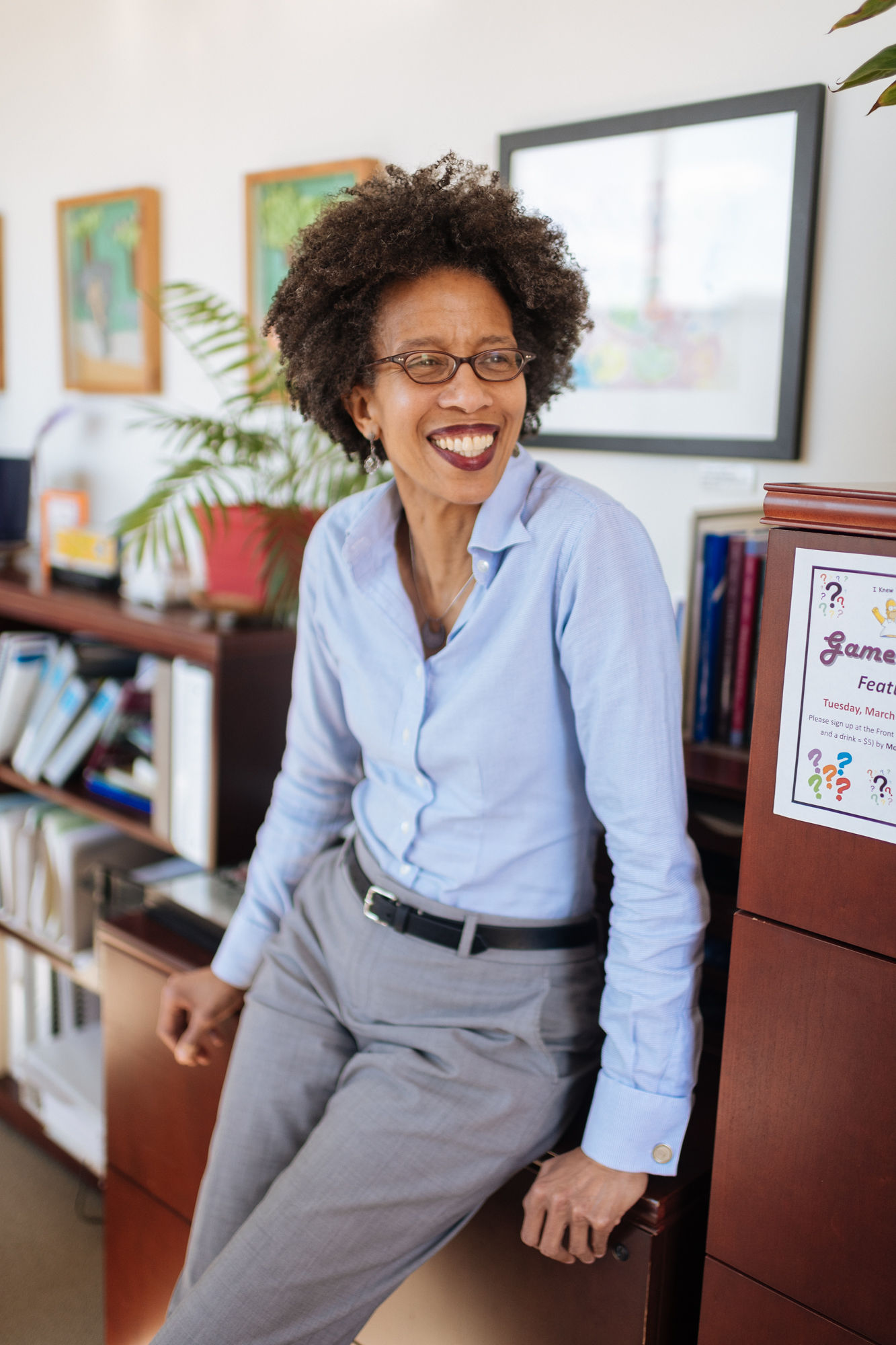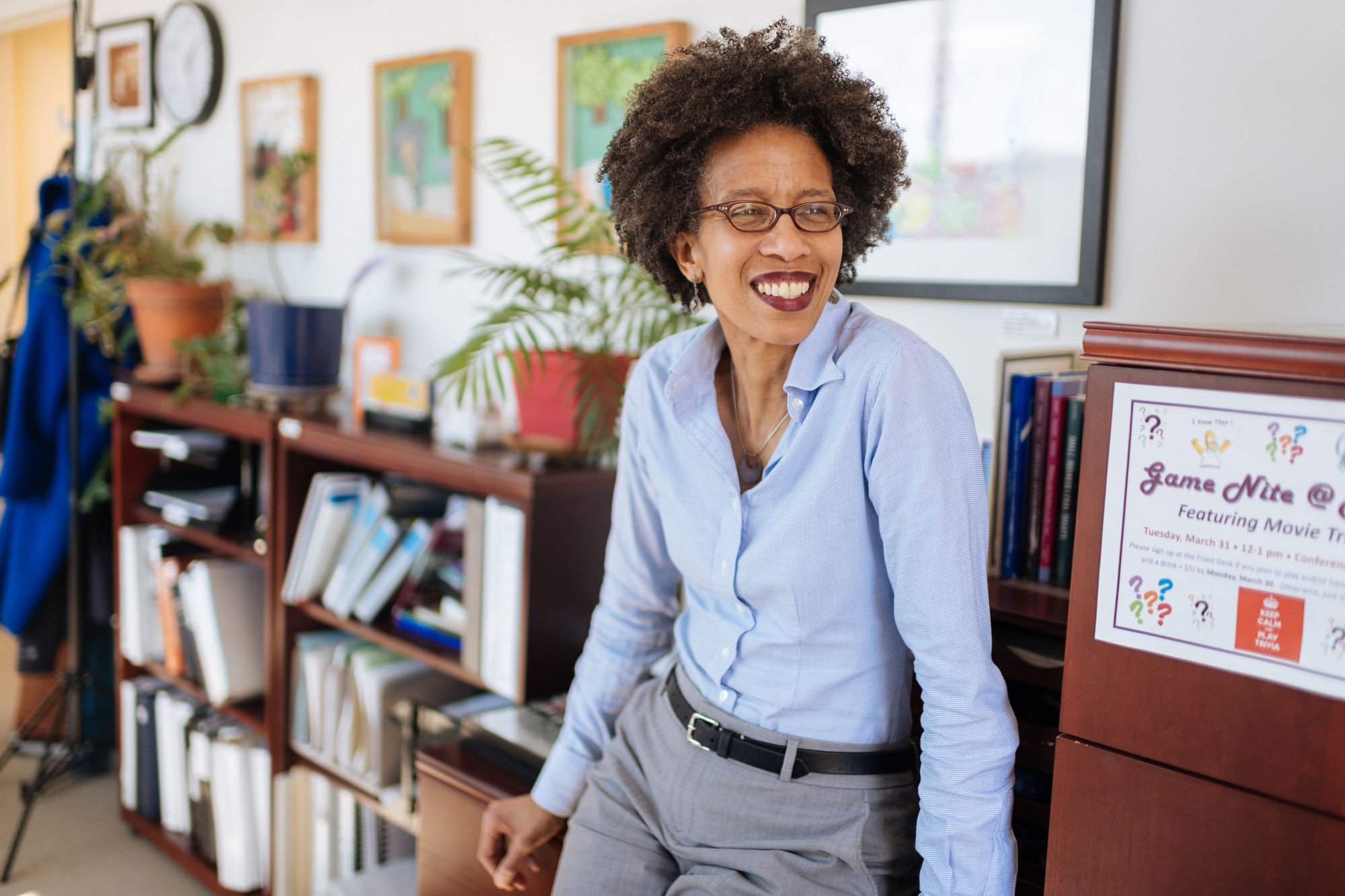‘I Believe That To Those Whom Much Is Given, Much Is Required’
It was either the mouse, or Traci Higgins.
The summer after graduating from college, she arrived at her Peace Corps site in the southern-most province of Ecuador—a single room in a building shaped like a seven, with a toilet, shower, and cement laundry slab under the house.
And some rodents.
After three months of training while living with a family outside of Quito, Traci was suddenly very much alone—present company excluded. She’d decided to join the Peace Corps after her mom died at the end of her junior year, and found herself recalibrating life at 21.
‘That sort of changed things. Up until then the plan was for me to graduate, get a good job, and take care of my mother. It was like, well—I can’t help her anymore, but I can help other people.’
To do so, she had to wage war on the mice.
Drawing from years spent observing her mom’s own resourcefulness, Traci bought a big container of glue, went to the road in front of her house, and collected handfuls of little pebbles. She got on her hands and knees and glued them into all of the spaces between the baseboard and the floor. To close the gap under the back door, she nailed a thick board to the floor.
The mice disappeared, and a newfound purpose emerged.
‘I got to travel some, made good friends, and strengthened my Spanish. But more than anything, coming from humble beginnings, I’ve always recognized I was fortunate and lucky. It was so underscored in the Peace Corps. If nothing else, I had the power of education. I could further my education.’
Growing up in a housing project in central Connecticut, Traci went to school with middle- and upper-class peers, many of whom were her friends. Her mom didn’t finish high school—later earning her GED—but created a space where education was valued.
‘My mother was not one who would lecture and say you need to do this, but she got us up for school every day, and she had encyclopedias and construction paper and glue and crayons and books. I think to the extent I have anything between my ears, I have her to credit for it. I often wonder what my mother could have been, would have been, had she been born at a different time, because she was super, super smart.’
Traci had enough between her ears to get into Georgetown University, which she counts among the strongest influences in her life. Despite initially feeling as though she’d ‘landed on the moon’, she quickly found her way and set her sights on becoming the next Walter Cronkite.
‘When I was in elementary school I would write up fake news and I had this pastel crayon box that I stuck a dowel in, and at the end I put some cotton and wrapped masking tape around it. I attached this spiral thing that looked like a power cord and I would read the news to some of my classmates, and practice Walter Cronkite’s sign off, ‘And that’s the way it is.’ I wanted to be a newscaster.’
Outside opinion thought otherwise. Traci says people looked at her strangely when she declared her intention—leading her to believe she hadn’t given them the ‘right answer.’ Law school seemed to sit better.
‘I took a constitutional law class, and I realized, I don’t want to be a lawyer; that’s just an answer for other folk. I dropped the class, and I did end up going to law school eventually, but it wasn’t a straight course.’
Influenced by her mother’s death, that course initially took Traci to Ecuador, followed by a stint as a substitute teacher, house painter, and social worker for the state of Connecticut. During that latter year of ‘eye-opening work,’ Traci settled on law school. This time, it was her choice.
Traci received a master’s degree in public affairs from the Woodrow Wilson School at Princeton and a JD from the University of Virginia, graduating from both institutions with very modest debt. She recognized what a gift she’d be given, and vowed to pay it forward.
‘I firmly believe that to those whom much is given, much is required. Regardless of your start in life, your circumstances can change, and they do change.’
The power of education has deeply informed Traci’s adulthood. She’s actively involved in the Georgetown Scholars Program, among other volunteer causes and Boards, to help guide low-income and first-generation students through college.
‘We need larger, faster systemic change, but at this point, person by person, you can make slow progress. You can change the trajectory of a family by investing in those individuals. Getting these kids to college has never been the problem. It’s about getting them to and through, and addressing all the things that they don’t understand about how to navigate a college campus. They’re the first in their families to attend college so they don’t have people back home with the experience to help.
‘Additionally, disparities in wealth engender the impostor syndrome, the sense that you don’t belong. I work with these students and let them know, you have it. You have been through so much. You have the resilience and persistence. Just work on your writing and critical thinking skills, and you’re going to be golden. You make a way when there is no way.’
One of the most important lessons Traci’s mom preached was the value in such self-awareness and inner strength.
‘My mom rarely yelled, but I had some exchange with her when I was in high school and she really fussed at me, and she waggled her finger and said, ‘You gotta look at your own. You gotta look at your own.’ I didn’t know fully what she meant but it stuck in my head. Later, I realized it’s the importance of recognizing what you are bringing to the party. When I was younger, someone would look at me funny or walk away and I thought, ‘Huh, why are they doing that? Because I’m black? Because I’m a girl? Then I changed the script. Have I met that person before? Was I rude to them the last time I met them? Am I scowling? Are they just having a bad day? Am I imagining something? Trying to figure out what am I bringing, what can I tweak, and then when I know, nope, I’m bringing my best self, OK—it’s on them. It’s the importance of fighting through those things, working on where you need to grow, and reveling in your successes and strengths.’
That focus on one’s best self has followed Traci throughout her career. After post-law school positions working for the Women’s World Cup, PBS, and an education non-profit, Traci found her way to Georgetown-based Legal Services Corporation.
Today, she serves as the director for the Office of Human Resources. The organization awards grants to non-profit law firms throughout the country that provide civil legal assistance to low-income Americans, a drop in the bucket in bridging the staggering gap between the legal needs of low-income people and the limited resources available to address them.
‘These individuals’ outcomes change exponentially when they are represented. And low-income people, people who are struggling—they’re everywhere. They’re here in Georgetown. You look to your left, you look to your right, you’re going to find someone who is within the poverty level. Republican, Democrat, male, female, young, old, Black, white, Asian. The problems associated with poverty hurt everyone, and it can happen to any of us. There but for the grace of God go I—but people lose their perspective. We’re here together on this planet and we ought to do all we can to make it as pleasant and comfortable as possible for everyone.’
Yet another lesson she learned from her mom, who did what she could to make things better right in their housing project—shoveling the sidewalk, planting flowers, and volunteering in the community.
‘My mom helped people whenever she could. I took that. That was my birthright. And then going to Georgetown, the Jesuit philosophy is women and men for others. Service is part of my DNA.’
At LSC, Traci is in service to the employees, encouraging each person to bring their best selves to work. She revels in the opportunity to help someone feel seen and heard.
‘I’m going to do what I can to help move people forward to resolve whatever’s keeping their light from shining as brightly as it should. You focus on people, and building the culture by celebrating employees and creating spaces for them to come together in fellowship, where they feel valued and respected. People matter. Everyone matters.’
The woman who mattered most taught her that, too.






